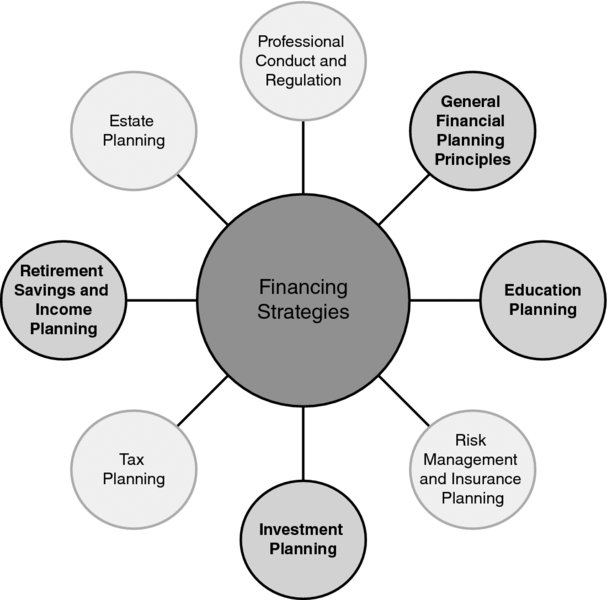CHAPTER 9 Financing Strategies
Martie Gillen, PhD
University of Florida
Michael Gutter, PhD
University of Florida
Jorge Ruiz-Menjivar
University of Georgia
CONNECTIONS DIAGRAM

Clients often face decisions involving financial goal setting, including the funding vehicle, such as savings. Financing strategies are essential factors that play significant roles during the lifetime of a client to assist clients in meeting financial goals such as with education planning, investment planning, retirement savings, and income planning. With an uncertain economy, a financial planner is needed to help consumers prioritize their finances in order to achieve long-term financial stability throughout these tough times. There are a number of options for financing financial goals. These many options often make financial management much more difficult for a client. As part of the financial planning process, recognizing and evaluating financing strategies is of the utmost importance in helping clients set and achieve short-term and long-term goals. This recognition will also aid clients in their financial decision making and provide a consistent track to meet these financial goals. A financial planner should stress the importance of financing strategies, including cash flow management, debt management, borrowing, and financial goals.
INTRODUCTION
A financial planner must be able to efficiently ...
Get Financial Planning Competency Handbook, 2nd Edition now with the O’Reilly learning platform.
O’Reilly members experience books, live events, courses curated by job role, and more from O’Reilly and nearly 200 top publishers.

